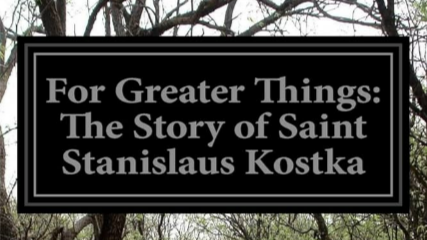Chapter X‑For Greater Things
byChapter X – For Greater Things recounts a decisive moment in Stanislaus Kostka’s life when inner strength triumphs over fear. No longer able to endure the cruelty of his brother Paul, Stanislaus reaches a breaking point. Unlike earlier times, when he would absorb the blows in silence, he now chooses to act—not in anger, but with clarity and purpose. Determined to escape the toxic environment, he quietly arranges for his journey, obtaining a coarse peasant’s tunic and sturdy shoes to blend in as he travels on foot. This outward change mirrors the inward transformation—a young man no longer bound by fear, but led by conviction. His plan isn’t born from rebellion, but from a yearning to follow his vocation freely.
When Paul’s temper flares once more over a trivial issue, Stanislaus responds not with submission but with firm resistance. Calmly but boldly, he declares his refusal to be treated with disrespect any longer. Paul, unprepared for such composure and courage, is stunned. His bluster fades as he realizes the authority now radiating from the younger brother he once belittled. Stanislaus informs him plainly that he will leave and seek peace elsewhere. The declaration is not theatrical—it is deliberate, resolute. He suggests Paul write to their father with the truth, accepting whatever consequences may follow. This moment marks a shift not just in Stanislaus’s journey, but in his sense of identity. No longer a passive victim, he becomes a young man choosing spiritual integrity over family control.
That night, peace settles over him. He sleeps calmly, having made his choice. Before dawn, he dresses in his finest garments—not to impress, but to make a clean and respectful exit. He writes a letter explaining his decision, then wakes Pacifici, a trusted servant, and entrusts him with the message. Stanislaus gives clear instructions: say nothing of his route, but speak the truth about his departure. His tone is gentle, not secretive. Before leaving the city, he walks to the Jesuit church, where he attends Mass and receives Holy Communion. This act, performed with devotion, sanctifies his journey before a single step is taken. It is a farewell and a beginning—a symbol of leaving behind not just a home, but a life that could no longer hold him.
The walk ahead is long, uncertain, and dangerous. But Stanislaus does not hesitate. Each step away from Vienna is a step closer to freedom—not political or personal, but spiritual. He carries no wealth, no worldly protection, only a deep trust in God. His departure, while painful, is also cleansing. No longer defined by his brother’s anger or his father’s expectations, he is now guided by a divine call. This moment of escape is not a retreat—it is an act of faith, a rejection of all that hindered his soul’s growth. His courage lies not in strength, but in surrendering his future to a higher will.
Along the way, he is met with suspicion and hardship. He eats sparingly and sleeps outdoors, enduring discomfort without complaint. Passersby offer little help, yet Stanislaus continues. He avoids familiar routes and known faces, determined not to be tracked. His pilgrimage becomes a test of both body and spirit. Yet, throughout, his demeanor remains steady—unafraid, unshaken. He sees every obstacle as part of the path God has laid before him. Even exhaustion does not dim his joy. With each village he passes, he comes closer to Augsburg, where he hopes to find sanctuary with the Jesuits.
What this chapter ultimately reveals is not just a flight from danger, but a profound commitment to one’s calling. Stanislaus’s decision to leave is not an escape from family, but a step toward spiritual purpose. He acts without resentment, but with firm resolve to serve something greater than himself. His silent prayer as he leaves Vienna speaks volumes—an offering of his journey, his future, and his pain to God. In choosing faith over fear, Stanislaus shows that the path to sanctity often begins with the courage to walk away from what is safe and known. His story challenges us to ask: what are we willing to leave behind in pursuit of something greater?

